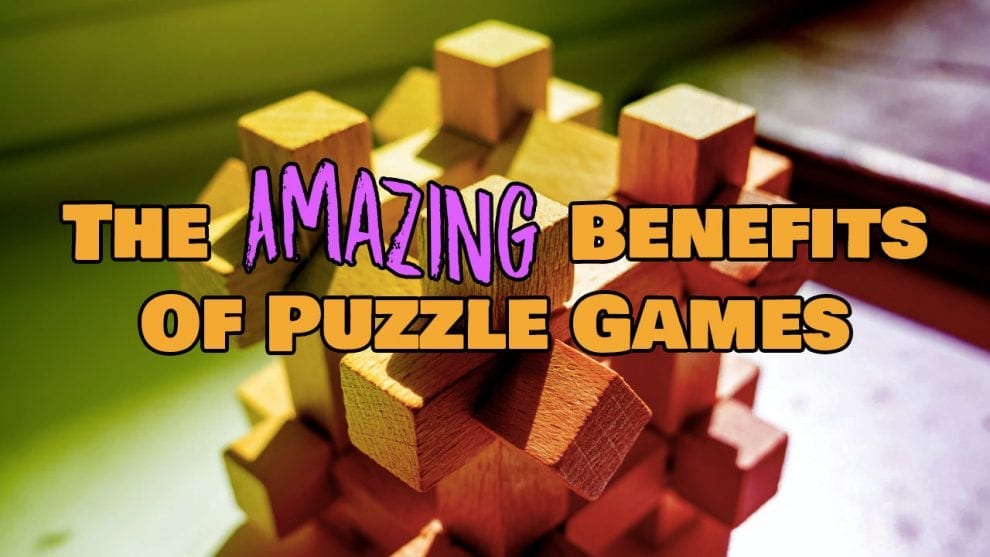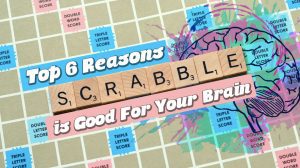According to a recent survey done by Ipsos, 48% of adults enjoy puzzles and puzzle games. 59% of people said that it was relaxing, and 42% felt that a puzzle was giving their brain a boost. Puzzle games have actually been about for more than 2,000 years. The Chinese were playing “magic squares” as far back as 700 BC, and puzzle jugs have been found in Cyprus that date back to 1700 BC. As humans, we like to challenge ourselves, exercise our brains, improve our problem-solving skills, and have fun. Anyone who has played an EXIT game, or delved into the catalog of Simulacra Games will understand just how enjoyable puzzle games can really be… but there are also significant other benefits of doing puzzles.
Problem solving skills
Looking for patterns and making logical choices is one of the many ways that we would approach a puzzle game. We would do the same thing if we were completing a wordsearch or Sudoku puzzle. Puzzles improve the way we make logical connections. A study published in the Harvard Business Review found that solving a challenging puzzle helps us to improve the skills that we have in pattern recognition – this is the brain’s ability to create meaning, find order and form answers from the data that we have been presented with. We also learn to work better by trial and error, forming our own theories and testing these, just like when playing Sherlock Holmes Consulting Detective.
In the same vein, playing games like Solitaire can be highly beneficial. Solitaire, in particular, is an excellent game for honing problem-solving skills. Its objective involves strategically arranging cards into specific sequences and suits, which requires careful planning and foresight. This process of arranging and re-arranging cards to achieve the game’s goal mirrors the cognitive processes involved in puzzle solving, thereby enhancing memory and reasoning skills.
Memory and reasoning
According to research published in the book How Puzzles Improve Your Brain: The Surprising Science of the Playful Brain by Richard Restak, puzzles are extremely good for improving your visual and spatial reasoning skills. This has a positive effect in other areas of your life, such as being able to drive a car. Doing puzzles and playing puzzle games regularly also helps to form new connections within your brain cells, improving your short term memory. A study done by the University of Michigan even found that people who do puzzles for 25 minutes a day showed an improvement in their IQ scores by four points. So a regular game of Ingenious or Decrypto could even make you smarter!
In line with these findings, the game 2048 is another excellent choice for memory improvement. The objective of 2048 is to slide numbered tiles on a grid to combine them and create a tile with the number 2048. Players must strategically manipulate the grid to combine tiles with matching numbers, which not only challenges memory but also requires planning and problem-solving skills. This kind of engaging and strategic gameplay is aligned with the cognitive benefits mentioned in the research, making 2048 a beneficial game for enhancing memory and cognitive skills.
Improving your mood
One of the main reasons we enjoy puzzle games is that it improves our mood. Doing a puzzle actually produces dopamine in the brain, giving us feelings of happiness. Dopamine is an essential neurotransmitter that regulates our memory and mood, and also helps us to concentrate. Then, of course, there is the feeling of satisfaction we get when we actually complete a puzzle. If you’re working with other people to complete a puzzle game, like Unlock! or or Blowback, it can be a great bonding experience too, bringing you together to work towards a common goal.
Puzzles are extremely good for the brain, and playing a puzzle game can provide a really good mental workout. The games are also great fun to play alone, or with friends and family – the perfect entertainment – with the added benefit of boosting your IQ.











It is illuminating to learn what science explained that that’s helping us not to feel “guilty of wasting time…” while playing games… But, then again, too much of one good thing will get us missing on other good things.